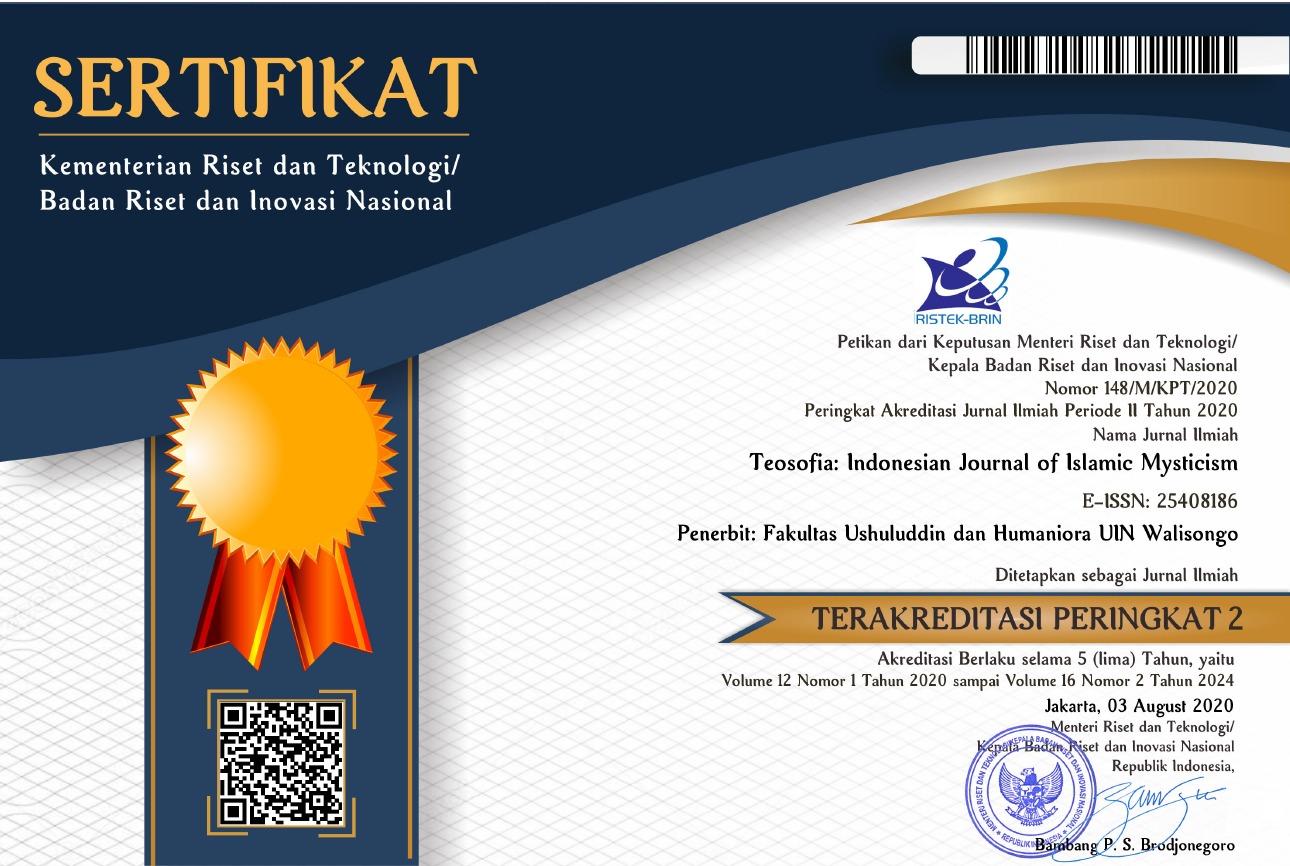Disruption Faces, Inequality, and Its Appearance in Religion: An Integrated Paradigm
DOI:
https://doi.org/10.21580/tos.v9i2.5368Keywords:
Information Technology, Religious Thought, Cultural Lag, Disruptive InnovationAbstract
Since the industrial revolution in England around the 18thcentury, the world changed in very fast motion. Sequentially steam engine was found, printing machines, computers, and finally the internet network—a forerunner of the digital era. These all affect without exception, including Indonesia. We live in a world connected one another through communication technology. Departing from this issue, this study focused on the face of religious thought, educational patterns, and culture—especially in Muslims society. Trying to integrate William F. Ogburn's Cultural Lag theory and Disruptive Innovation of Clayton Cristensen, this study found the symptom connection between them. Civilization which consists of two elements: material (technology) and non-material (culture; education) are clearly separated by the abyss. One element flies very fast, and the other crawls slowly. These two things ultimately influence the Muslim religious thinking today. Overlapping the information in digital media every day made religious people did not have time to digest or analyze it. In fact, we found unilateral truth claims from certain groups—in the name of a complete understanding of religion, which is deeply turned out to be ahistorical. Here; disruption is caused by the movement of information that coming so fast—unstoppable and created a shallow, instant and hasty knowledge.
Downloads
References
Abdullah, M. Amin. “Lokalitas, Islamisitas, Dan Globalitas.” Kanz Philosophia: A Journal for Islamic Philosophy and Mysticism 2, no. 2 (2012): 329–346.
———. Studi Agama: Normativitas Atau Historisitas? Yogyakarta: Pustaka Pelajar, 2011.
Al-Amin, Ainur Rofiq. Khilafah HTI Dalam Timbangan. Jakarta: Pustaka Harakatuna, 2017.
Arkoun, Muhammad. Al-Islam: Al-Akhlaq Wa Al-Siyasah. Translated by Hashim Saleh. Beirut: Markaz al-Inma al-Qaumy, 1990.
Barbour, Ian G. Isu Dalam Sains Dan Agama. Yogyakarta: Universitas Islam Negeri Sunan Kalijaga, 2006.
———. “Paradigms in Science and Religion.” In Paradigms and Revolutions: Applications and Appraisals of Thomas Kuhn’s Philosophy of Science, edited by Gary Gutting. Indiana: University of Notre Dame Press, 1980.
Birkerts, Sven. The Gutenberg Elegies: The Fate of Reading in Electronic Age. United States: Faber and Faber, 1994.
Bruinessen, Martin van. Kitab Kuning, Pesantren Dan Tarekat. Yogyakarta: Gading Publishing, 2012.
Djaja, Wahjudi. Sejarah Eropa: Dari Eropa Kuno Sampai Eropa Modern. Yogyakarta: Penerbit Ombak, 2012.
Hasan, Noorhaidi. Literatur Keislaman Generasi Milenial: Transmisi, Apropriasi, Dan Kontestasi. Yogyakarta: Pascasarjana UIN Sunan Kalijaga, 2018.
“Investigasi Paham Radikal Di Kampus Kita.” Tempo, 2018. https://majalah.tempo.co/edisi/2381/2018-05-27.
Jakarta, Tim PPM UIN Syarif Hidayatullah. “‘Api Dalam Sekam’ Keberagamaan Muslim Gen-Z.” Jakarta, 2017. https://drive.google.com/file/d/15OdGkMWZ5QrV4mZqy6jedKvNzgAxhYY8/view.
Kasali, Rhenald. Disruption. Jakarta: Gramedia, 2017.
Ma’arif, Ahmad Syafi’i. Krisis Arab Dan Masa Depan Dunia Islam. Bandung: Mizan Media Utama, 2018.
“Pangkalan Data Pondok Pesantren.” Accessed October 18, 2019. https://ditpdpontren.kemenag.go.id/pdpp/statistik.
Roy, Olivier. The Failure of Political Islam. Cambridge: Harvard University Press, 1996.
Schaefer, Richard T. Sociology: A Brief Introduction. New York: McGraw-Hill, 2011.
BBC News, Indonesia. “Serangan Bom Di Tiga Gereja Surabaya: Pelaku Bom Bunuh Diri ‘Perempuan Yang Membawa Dua Anak,’” May 13, 2018. https://www.bbc.com/indonesia/indonesia-44097913.
Smart, Ninian. Worldviews: Crosscultural Exploration of Human Beliefs. London: Pearson, 1983.
Widjanarko, Putut. “Elegi Gutenberg.” In Elegi Gutenberg: Memposisikan Buku Di Era Cyberspace. Bandung: Mizan, 2000.
Downloads
Additional Files
Published
How to Cite
Issue
Section
License
Copyright
The copyright of the received article shall be assigned to the journal as the publisher of the journal. The intended copyright includes the right to publish the article in various forms (including reprints). The journal maintains the publishing rights to the published articles. Therefore, the author must submit a statement of the Copyright Transfer Agreement.*)
Licensing

This work is licensed under a Creative Commons Attribution-ShareAlike 4.0 International License.
In line with the license, authors are allowed to share and adapt the material. In addition, the material must be given appropriate credit, provided with a link to the license, and indicated if changes were made. If authors remix, transform or build upon the material, authors must distribute their contributions under the same license as the original.
_______
*) Authors whose articles are accepted for publication will receive confirmation via email and send a Copyright Transfer Agreement.








